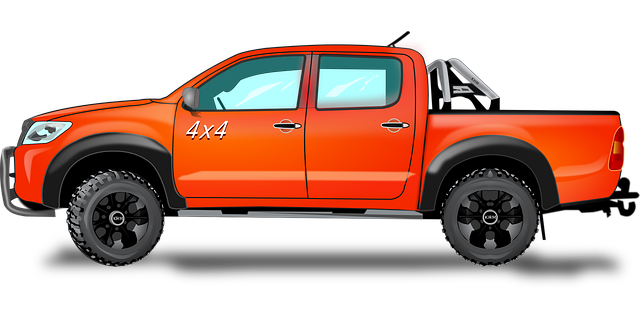Truck clutches are essential components for fleet vehicles in Brownsville, enabling smooth gear shifting and efficient driving. Different clutch types—mechanical, hydraulic, and electronic—offer unique advantages based on vehicle weight and use cases. Regular fleet truck transmission repair is crucial for maximizing vehicle lifespan and productivity due to frequent stops and starts common in fleet operations. Selecting the right clutch system, considering factors like durability, heat dissipation, and maintenance needs, is key for optimal performance and longevity of fleet trucks in Brownsville.
Clutches are essential components in fleet trucks, enabling smooth gear shifts and controlled power transmission. This article delves into the intricacies of truck clutch systems, exploring their basic function, types (single-disc, multi-disc, dry, wet), and unique advantages. We also shed light on common clutch issues in Brownsville fleet trucks, providing diagnostic steps for timely transmission repair. Learn about the clutch replacement process, essential tools, and post-repair tips to ensure optimal performance. Additionally, discover best practices for maintaining fleet trucks, focusing on clutch care and longevity in Brownsville. For all your fleet truck transmission repair needs in Brownsville, this guide is your trusted companion.
- Understanding Truck Clutches: The Basic Function and Types
- – Explanation of clutch systems in fleet trucks
- – Different types of truck clutches (single-disc, multi-disc, dry clutch, wet clutch)
- – How each type operates and their unique advantages/disadvantages
Understanding Truck Clutches: The Basic Function and Types

Truck clutches are an essential component of fleet vehicles and their transmission systems. Their primary function is to disengage the engine from the drivetrain, allowing drivers to shift gears smoothly and efficiently. This mechanism enables drivers to control the power transfer, which is crucial for optimal vehicle performance, especially in heavy-duty trucks.
There are various types of truck clutches designed to cater to different fleet needs. These include mechanical, hydraulic, and electronic clutches, each with unique advantages. Mechanical clutches use a set of friction discs and springs to engage and disengage the clutch pedal, offering precision control. Hydraulic clutches, on the other hand, utilize compressed fluid to transmit force, providing smoother and faster engagement. Electronic clutches incorporate advanced technology, allowing for precise control and reduced wear, which is particularly beneficial for fleet Truck transmission repair in Brownsville.
– Explanation of clutch systems in fleet trucks

Clutch systems play a pivotal role in fleet trucks, serving as a critical component in their transmission repair and overall performance. These mechanisms facilitate the transfer of power from the engine to the wheels, allowing drivers to smoothly shift gears. In fleet vehicles, where frequent starts and stops are common, well-maintained clutch systems ensure efficient driving and extend the lifespan of the transmission. Regular fleet truck transmission repair in Brownsville is essential to keep these systems running optimally, minimizing downtime and maximizing fleet productivity.
– Different types of truck clutches (single-disc, multi-disc, dry clutch, wet clutch)

Truck clutches are integral components in fleet operations and truck transmission repair in Brownsville. They come in various types, each with unique characteristics designed to cater to different driving conditions and performance needs. Single-disc clutches, for instance, are known for their simplicity and affordability, making them a popular choice among light-duty trucks. On the other hand, multi-disc clutches offer enhanced durability and heat dissipation capabilities, suitable for heavier vehicles demanding more power transfer.
Dry clutch systems utilize air pressure to engage the clutch, eliminating the need for fluid, while wet clutches operate with hydraulic or automatic transmission fluid, providing smoother operation but requiring regular maintenance checks. Choosing the right type of truck clutch involves considering factors such as vehicle weight, intended use, and operating conditions prevalent in Brownsville’s fleet operations, ensuring optimal performance and longevity of the transmission system.
– How each type operates and their unique advantages/disadvantages

Clutches play a critical role in fleet truck transmission repair, offering distinct advantages and disadvantages depending on their type.
Mechanical Clutches: These traditional clutches rely on friction to connect and disconnect the engine to the transmission. Their primary advantage is simplicity and reliability, making them suitable for basic applications. However, they can experience wear and tear over time, leading to reduced performance and potential failure if not maintained properly.
Hydraulic Clutches: Utilizing hydraulic fluid pressure to engage and disengage, these clutches offer smoother and more precise control compared to mechanical models. This makes them ideal for heavy-duty trucks and commercial applications where smooth shifting is essential. While they are more complex and may require specialized maintenance, their performance benefits outweigh the added complexity in fleet environments demanding consistent and efficient power transfer.
Understanding truck clutches is essential for fleet managers and drivers alike. By familiarizing yourself with different types, from single-disc to wet clutches, you can optimize performance and reduce the risk of costly transmission repairs in Brownsville. Regular maintenance and awareness of each clutch type’s advantages and disadvantages will contribute to a smoother driving experience, ensuring your fleet stays on the road efficiently.



